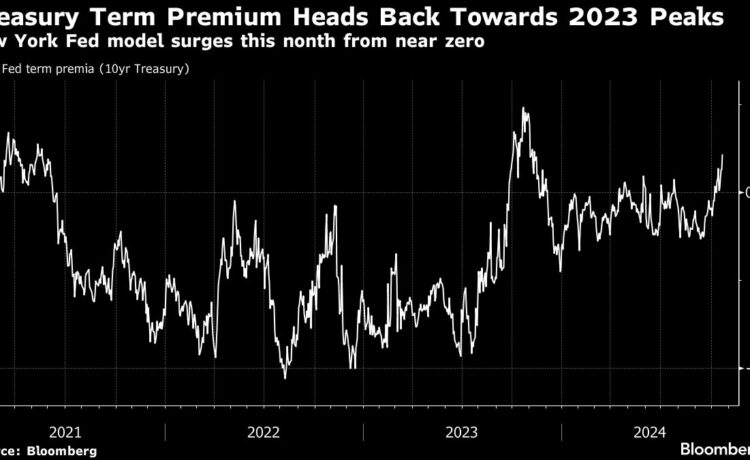(Bloomberg) — Stocks rose for the first time this week, with traders parsing a slew of corporate earnings for clues on the health of the world’s largest economy. Treasuries rebounded after days of losses.
Most Read from Bloomberg
A gauge of the “Magnificent Seven” hit a three-month high, with Tesla Inc. up 22% in its biggest rally since May 2013. Elon Musk’s electric-vehicle giant reported strong earnings and forecast as much as 30% growth in car sales next year. United Parcel Service Inc. — an economic barometer — jumped 5.3% after returning to sales and profit growth. International Business Machines Corp. and Honeywell International Inc.’s results failed to inspire.
“Despite the possibility of more volatility as we get deeper into earnings season and close in on the November election, the market’s longer-term outlook remains solid,” said Daniel Skelly at Morgan Stanley’s Wealth Management Market Research & Strategy team.
The market barely budged after Thursday’s economic data, with new home sales beating estimates, initial jobless claims dropping and business activity expanding at a solid pace.
“Goldilocks data that’s in-line with expectations (so not too good or too bad) is the best outcome for a continued rebound in stocks and bonds,” said Tom Essaye at The Sevens Report.
The S&P 500 rose 0.2%, reclaiming its 5,800 mark. The Nasdaq 100 climbed 0.8%. The Dow Jones Industrial Average dropped 0.3%, posting a fourth consecutive day of losses — the longest losing streak since June. In late hours, Tapestry Inc. — the maker of Kate Spade handbags — rallied as a judge blocked the planned acquisition of rival Capri Holdings Ltd.
US 10-year yields fell four basis points to 4.20%. A $24 billion five-year TIPS auction drew the lowest yield this year as inflation-protected Treasuries have outperformed since the Federal Reserve cut rates last month.
Oil dropped as oversupply concerns overshadowed the risks from Israel’s potential retaliatory strike on Iran.
“The market appears to be driven by the projected outcome of the earnings reporting period, the presidential election, and the bond market’s interpretation of future monetary actions by the Federal Reserve,” said Sam Stovall at CFRA. “Investors see the resiliency of the economy and employment forcing the Fed to be ‘slower to lower’ on rates.”














